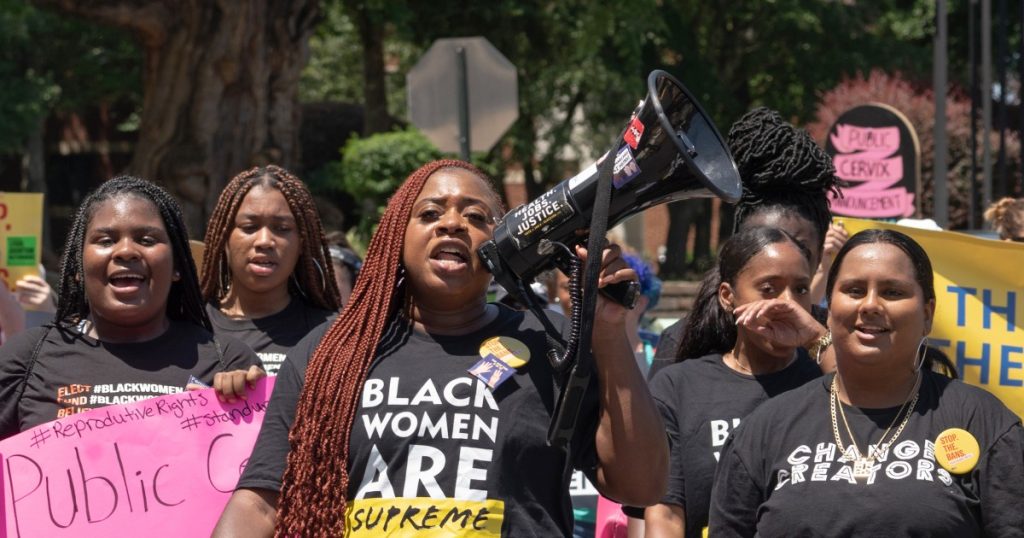A report released by the National Partnership for Women & Families and In Our Own Voice highlighted the impact of abortion restrictions on Black women in the United States. Nearly 7 million of the country’s 11.8 million Black women of reproductive age live in states with abortion restrictions or plans to implement them. This affects 57% of Black women ages 15 to 49, who are considered to be of reproductive age. The report also found that 2.7 million of the Black women affected are economically insecure, with 1.4 million working in service jobs that do not provide benefits like paid sick days and flexible scheduling.
The report identified three states – Texas, Florida, and Georgia – as having some of the toughest abortion laws, with 43% of Black women of childbearing age living in these states facing restrictions on abortion access. Southern states make up the majority of states with abortion restrictions, and with the Black population concentrated in the South, the impact on Black women is significant. Jocelyn Frye, president of the NPWF, emphasized that addressing the barriers faced by Black women benefits all women, as Black women often serve as a bellwether for issues affecting women as a whole.
Since the Supreme Court overturned the landmark Roe v. Wade decision, the number of states with abortion bans or restrictions has increased. Nearly 50% of Black women ages 18 to 44 living in states with restricted access to abortion have faced difficult decisions and questions regarding their reproductive health and rights. The report highlighted concerns such as the safety of childbirth, fear of arrest for needing an abortion, and the choice to forgo having children altogether due to limited access to reproductive health care.
Reproductive justice advocates have been vocal about the disproportionate impact of limited abortion access on Black people, who seek abortion care at higher rates and have less access to family planning services. The report emphasized the need to prioritize the experiences of women of color, including Black women, in discussions around abortion access and reproductive rights. The organizations behind the report hope to influence policymakers, academics, and advocacy groups to consider the consequences of restricting abortion access on Black women and communities.
The organizations stressed the importance of moving away from a mentality of “us versus them” and towards a collective approach to addressing issues around abortion restrictions. By centering the experiences of Black women and other marginalized groups, they believe that solutions to these issues can be more effectively identified and implemented. The report, titled “State Abortion Bans Threaten Nearly 7 Million Black Women, Exacerbate the Existing Black Maternal Mortality Crisis,” aims to raise awareness about the challenges faced by Black women in accessing reproductive health care and to advocate for policies that prioritize their needs and rights.













